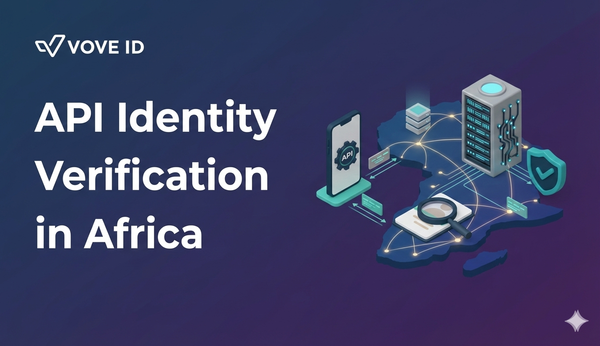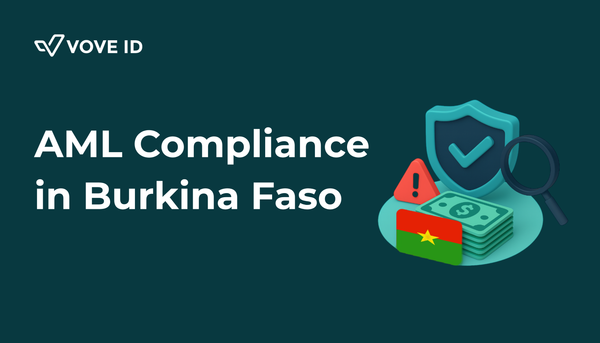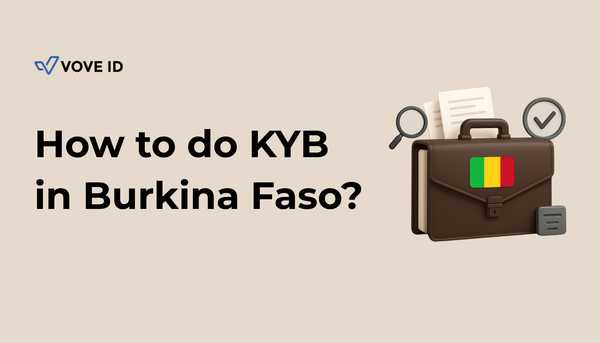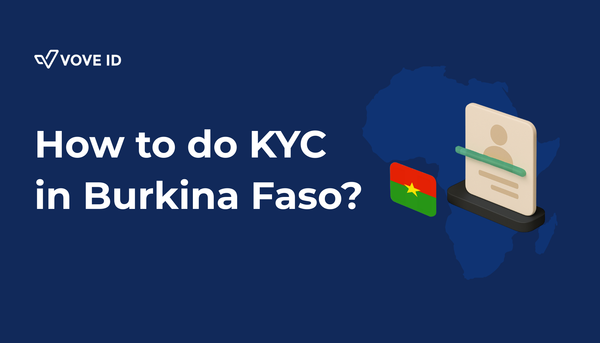KYB Compliance in Zambia: 2025 Guide for Fintechs and Regulated Businesses
KYB compliance in Zambia is evolving with new UBO rules, PACRA’s BO API, and stricter AML oversight. Learn how fintechs stay compliant with digital identity tools.
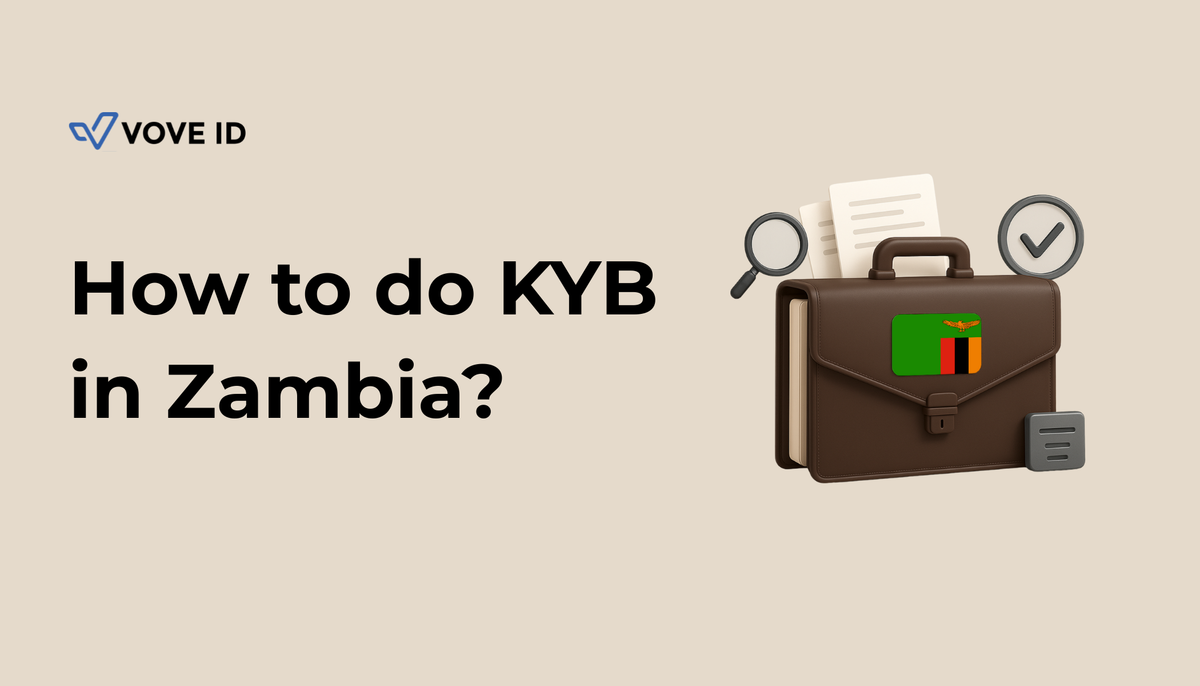
Zambia’s digital economy is expanding quickly, driven by fintech growth, mobile money adoption, and stronger regional investment flows. As the ecosystem matures, regulators are tightening expectations around business transparency and beneficial ownership. KYB is now as important as KYC for any organisation onboarding companies, whether you are a bank, fintech, crypto exchange, mobile-money provider, or digital lender.
In 2025, Zambia introduced several important updates. PACRA launched a new online portal with a paid API for accessing the beneficial ownership registry, available to regulated entities. BoZ released updated AML and CFT Guidelines with a stricter 10 percent UBO threshold, replacing the previous 25 percent in certain cases. FIC has also increased enforcement actions, issuing several high-profile fines to fintech and crypto companies for insufficient KYB checks. As requirements become more demanding, digital verification platforms like VOVE ID help businesses automate corporate onboarding and stay aligned with evolving regulations.
Regulatory Framework for KYB in Zambia
Key Authorities
- PACRA (Patents and Companies Registration Agency), which handles company registrations and maintains the beneficial ownership (BO) registry
- Financial Intelligence Centre (FIC), responsible for AML/CFT oversight and reporting requirements
- Bank of Zambia (BoZ), which issues AML/CFT directives for banks, fintechs, and DNFBPs
- Business Regulatory Review Agency (BRRA), supporting licensing and regulatory processes for businesses
Relevant Laws and Directives
- Companies Act No. 10 of 2017 and Amendment Act No. 4 of 2020, introducing mandatory BO reporting
- Financial Intelligence Centre Act No. 46 of 2010, establishing corporate due diligence obligations
- BoZ AML/CFT Guidelines 2025, issued in October 2025, introducing the new 10 percent UBO threshold
- BoZ AML/CFT Directives, defining KYB, document requirements, and continuous monitoring obligations
International Alignment
Zambia is an active member of ESAAMLG, meaning its KYB and AML framework aligns with FATF standards, especially concerning corporate transparency and BO reporting.
The KYB Process in Zambia (2025)
1. Business Identity Verification
When onboarding a corporate customer, organisations must collect and verify:
- Certificate of Incorporation and PACRA registration documents
- Company constitution and governance structure
- Physical address and business activity
- Details of directors, shareholders, and authorised signatories
2. Beneficial Ownership Identification (UBO)
Recent regulatory updates require deeper BO checks:
- BoZ now defines any individual holding 10 percent or more as a UBO
- Companies must maintain complete BO registers, including name, nationality, ID number (NRC or passport), address, and ownership percentage
- UBOs must undergo Customer Due Diligence (CDD), including document checks, risk assessment, and where needed enhanced due diligence
3. Ongoing Monitoring and Reporting
- Periodic reviews of corporate accounts and BO records
- Update checks when ownership or governance changes
- Continuous transaction monitoring to detect unusual behaviour
- Enhanced Due Diligence (EDD) for higher-risk structures, such as multi-layered ownership or foreign entities
- Filing Suspicious Transaction Reports (STRs) to the FIC when required
Key Challenges for KYB in Zambia
1. Data Quality and Accuracy
Although BO reporting is mandatory, many companies delay or fail to update their BO details consistently.
2. Privacy and Access Limitations
BO information is not fully public. The new 2025 PACRA API accelerates verification, but only regulated entities with paid access can use it.
3. Resource Burden for SMEs
Maintaining BO registers and meeting AML expectations can be operationally demanding for smaller companies.
4. Complex Ownership Structures
Layered holdings, nominee arrangements, and cross-border entities require deeper analysis and more sophisticated tools.
5. Increased Scrutiny for Fintech and Crypto
In 2025, FIC significantly increased requests related to fintech and VASP corporate clients, and several enforcement actions made headlines.
Opportunities and Market Trends
- PACRA API (launched mid-2025) gives regulated entities faster access to BO data and reduces manual verification work
- Digital company registration through PACRA and BRRA continues to improve data accessibility
- Growth of automation tools for KYB, AML screening, and onboarding
- Stronger investment confidence as corporate transparency improves
- Rising adoption of identity and KYB technology by fintech companies scaling regionally
The Role of Technology and VOVE ID in KYB
Technology is reshaping the KYB workflow in Zambia. Automated checks reduce manual review and support compliance teams working under pressure.
- VOVE ID enables automated verification of PACRA company documents during corporate onboarding
- For UBOs and directors, VOVE ID supports NRC and passport verification, biometric checks with liveness, and identity validation
- VOVE ID also provides AML screening workflows for sanctions, PEP lists, and adverse media, helping teams manage risk and avoid compliance gaps
These capabilities help fintechs, lenders, crypto platforms, and payment companies scale KYB quickly without sacrificing accuracy.
Conclusion
KYB compliance in Zambia is becoming significantly more rigorous in 2025 and beyond. With the new PACRA API, the lowered UBO threshold, and increased FIC scrutiny, companies must rethink how they verify and monitor corporate clients. Firms that rely on manual processes risk delays, blind spots, and regulatory penalties. Digital onboarding and verification platforms such as VOVE ID help organisations stay compliant, reduce operational load, and expand safely in Zambia’s evolving financial ecosystem.
If you want faster KYB checks and smoother corporate onboarding in Zambia, explore how VOVE ID can support automated verification and AML screening.

